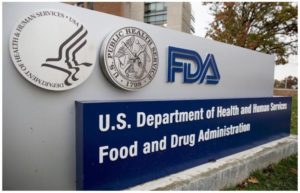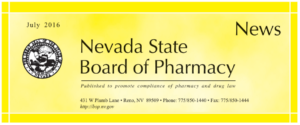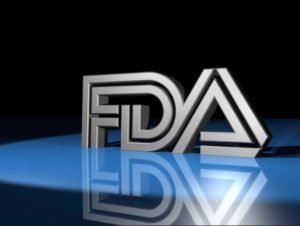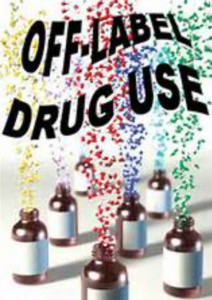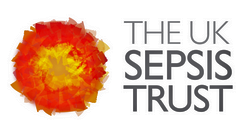- FDA Says Real-World Evidence Could Generate ‘Incorrect or Unreliable Conclusions’ (raps.org)
...top Food and Drug Administration officials published an article in the New England Journal of Medicine (Real-World Evidence — What Is It and What Can It Tell Us? )...calling into question some of the potential uses of real-world evidence but also acknowledging that real world research and the concepts of a planned intervention and randomization “are entirely compatible."...while acknowledging that such (real-world) evidence “can inform therapeutic development, outcomes research, patient care, research on health care systems, quality improvement, safety surveillance, and well-controlled effectiveness studies,” the authors caution that “the confluence of large data sets of uncertain quality and provenance, the facile analytic tools that can be used by nonexperts, and a shortage of researchers with adequate methodologic savvy could result in poorly conceived study and analytic designs that generate incorrect or unreliable conclusions...“Accordingly, if we are to realize the full promise of such evidence, we must be clear about what it is and how it can be used most effectively, and we must have appropriate expectations about what it can tell us,”...
- Homeopathic Medicines Will Carry Labels Saying They’re Unscientific (slate.com)
The Federal Trade Commission just cracked down on an unusual product that has long enjoyed exemption from regulation: homeopathic drugs. Available everywhere...homeopathic products are advertised as an effective way to treat a wide range of conditions...Americans spend over $3 billion a year on homeopathy, and the market appears to be growing steadily...companies selling these products have never been required to show they are effective at doing what they claim...the FTC announced its “enforcement policy statement” about homeopathic product labeling...the recommendations are pretty minimal...the agency produced a report that concluded customers were likely to be deceived by labels that did not carry the appropriate disclaimers, and therefore disclaimers stating that these products are untested will now be required. The requirement is not technically a law like…The rules require packaging to effectively communicate two key disclaimers:
- “There is no scientific evidence that the product works.”
- “The product’s claims are based only on theories of homeopathy from the 1700s that are not accepted by most modern medical experts.”
- FDA Starts Showing Its Plans for Oversight of Pharmacy Compounding (ashp.org)
This spring and summer, FDA revealed in several guidance documents what the agency thinks pharmacy compounding should look like now that the relevant provisions in federal law are firmly in place and the agency has a budget for oversight...Some of FDA's ideas, if incorporated into the final versions of the guidances, could be challenging for hospitals and health systems to implement…as hospitals continue to affiliate or form multihospital systems...a plan to centralize compounding activities may need to be reconsidered.
- Guidances, not regulations
- Limits on anticipatory compounding.
- Geographic limit on distribution.
- Address-dependent facility definition.
- No copycats of commercially available products.
- Nevada State Board of Pharmacy Newsletter – July 2016 (bop.nv.gov)
- Must I Get an ID on My Patient? - ChaoFen (Stacy) Tan, PharmD Candidate
- Prescription Over-the-Counter Products
- FDA Calls for Review of Opioids Policy, Announces Action Plan
- More Selected Medication Safety Risks to Manage in 2016 - ISMP
- Manufacturer Drug Labeling, Packaging, Nomenclature - Per Liter Electrolyte Content on Various Sizes of Manufacturers' IV Bags
- Patient Education - Discharging Patients Who Do Not Understand Their Discharge Medications
- Compliance News
- USP Publishes Chapter on Handling Hazardous Drugs in Health Care Setting
- FDA Provides Training Video on Keeping Medications Safe in Emergency Situations
- FDA Requires Class-Wide Labeling Changes for IR Opioid Analgesics
- FDA Issues Alert Regarding All Unexpired Sterile Drug Products Produced by Medaus Pharmacy
- E-Prescribing - Who Can Send Electronic Prescriptions? - Melissa Hampton, PharmD Candidate
- FDA finalizes quality guidelines for contract manufacturers (biopharmadive.com)
The Food and Drug Administration has finalized guidelines, three-and-a-half years in the making, suggesting what should go into quality agreements between pharmaceutical companies and outsourced contract manufacturers...The agency's recommendations come at a time when fully two-thirds of pharmaceutical manufacturing is outsourced, putting significant demand on contract manufacturing organizations (CMOs)…Current Good Manufacturing Practice requirements apply to all contract facilities, including analytical testing labs...FDA recommends that owners and contract facilities implement written quality agreements delineating manufacturing activities to facilitate compliance with CGMP. The agency suggests that quality contracts between companies and CMOs include the purpose and scope of contract manufacturing services to be provided; provisions on how to resolve disputes and how to change manufacturing processes, and contract revision policies...
- FDA issues guidelines for female libido pills after learning some hard lessons (statnews.com)
After a two-year wait, the US Food and Drug Administration finally issued new guidance for companies that want to develop drugs to bolster female libidos. But the details suggest the agency has belatedly learned some hard-fought lessons following complaints that the controversial Addyi pill did not warrant approval last year...The 15-page draft guidance...offers a typical how-to for companies, but also points to certain steps that Sprout Pharmaceuticals did not follow as part of its Addyi marketing application...The drug, which is now sold by Valeant Pharmaceuticals, was approved despite debate over its safety and effectiveness, and the extent to which medicines should be used to treat female sexual dysfunction...the FDA is locking the barn door after the horse got out. So now, the agency is telling other companies to do some things that Sprout didn’t do...they’ve made it harder to get a drug approved but they have extended helping hands in numerous places...unless [a company] really looks hard for subgroups [of patients], the whole effort is hopeless...
- Drugmakers Split on Whether to Include Interchangeability Statement in Biosimilar Labels (raps.org)
Drug, biologic and biosimilar companies’ comments on Food and Drug Administration draft guidance on biosimilar labeling reveals a major split between those who do and do not want a statement on a biosimilar’s interchangeability status on each new product's label...FDA has still yet to release its guidance on what interchangeability means, and as FDA has not found any biosimilar to be interchangeable with its reference product…
- Amgen says it...believes a biosimilar label should include a summary of the clinical data, including immunogenicity data, used to demonstrate biosimilarity or interchangeability…
- Pfizer said...biosimilars should not be labeled "as though they were small molecule generic drugs" and that it "recommends that biosimilar labeling include a statement reflecting whether interchangeability has been assessed."
- Merck & Co...says "that a single blanket approach applicable to all biosimilar products is not appropriate, and may cause unnecessary confusion among stakeholders."...recommends that rather than using such blanket statements, FDA take a risk-based approach for each biosimilar…
- Boehringer Ingelheim says that it "does not agree that a biosimilar label needs to include a ‘biosimilarity statement,’...Such information is not ‘essential scientific information needed by health care practitioners for the safe and effective use of a drug.’
- Sandoz...says... "It is self-evident that the very act of highlighting the indications that are extrapolated is being proposed by some groups in order to raise doubts as to the safety and efficacy of the biosimilar for those indications, and perhaps to also imply inferiority of biosimilars across the board.
- GAO Releases Compounding Report (iacp.site-ym.com)
The U.S. Government Accountability Office has published a report...on compounding entitled “ Drug Compounding – FDA Has Taken Steps to Implement Compounding Law, but Some States and Stakeholders Reported Challenges.”
- FDA to hold long-awaited meeting to review off-label marketing (statnews.com)
After years of anticipation, the Food and Drug Administration will hold a public, two-day meeting in November to review the extent to which so-called off-label information about medicines may be disseminated to physicians...the FDA has taken a firm stance toward the issue. A key concern is that public health could be jeopardized if a company were to distribute information about an unapproved use that had not been proven to be safe and effective, a standard for regulatory approval...drug makers have argued that conveying certain types of information is protected by the First Amendment...drug makers and their supporters have grown impatient and fear that various court rulings might become a de facto standard. Last winter, an independent review panel was floated as a way to address the issue. Last May, two lawmakers accused the Department of Health and Human Services of delaying new rules and issued a draft bill that would allow companies to market products for unapproved uses...
- Dept of Health to launch sepsis awareness campaign across UK (pmlive.com)
An awareness campaign to improve public recognition of sepsis will be launched across the UK this year, carried out by the Department of Health and Public Health England...Working in collaboration with the UK Sepsis Trust, the initiative aims to better public understanding of the blood poisoning condition that requires quick diagnosis and treatment to effectively combat...Approximately 150,000 adults and children in the UK are affected by sepsis annually, with around 44,000 of those dying each year. If not identified and treated quickly, survivors of sepsis can be left with life-changing disabilities... better sepsis care could save 13,500 lives every year and save the NHS £314m annually...The public awareness drive - called Just ASK: could it be sepsis? - hopes to equip the general public with knowledge of the condition so that they might recognise it and prompt healthcare professionals to fast-track diagnosis of the time-sensitive illness.

